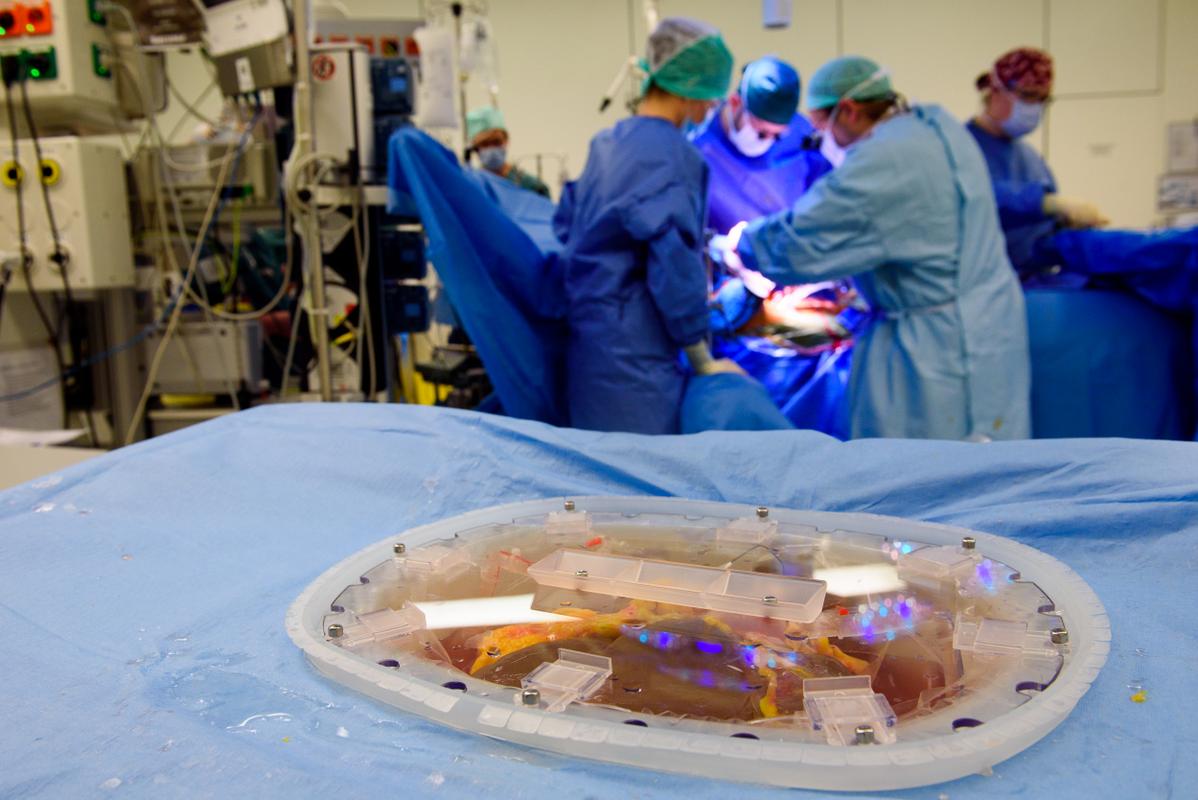The trial followed 156 patients that underwent a liver transplant. They were all given an organ of a donor that died of a cardiac arrest. Half of the donor livers were flushed with an oxygenated fluid for two hours via ex vivo machine perfusion. The other half of donor organs were kept on ice.
Biliary tract complications
The trial examined whether the type of storage of donor livers had an effect on developing biliary tract problems post-transplant. This complication occurs in approximately a quarter of all patients that have undergone a liver transplant. A donor liver has to be kept ex vivo for some time and will be damaged as a result of lack of oxygen. The biliary tracts in the liver are particularly sensitive to this.
Biliary tract problems usually present themselves three or four months after the liver transplant in the form of fever, jaundice and inflammations. It often requires additional treatment and procedures and sometimes patients will even need a new liver transplant. This makes biliary tract complications to most common cause of the loss of donor livers.
Fewer biliary tract problems after perfusion
Research has shown the biliary tract problems occurred far less frequent in the patient group where the new liver was flushed with a perfusion machine. Of these 6% developed biliary tract problems, as opposed to 18% of the patients in the control group. What's more, the problems in the perfusion group were often less serious. The total number of follow-up treatments required for biliary tract problems was four times lower in patients with a perfused liver.
Trial leader prof. dr. Robert Porte (UMCG) is extremely enthusiastic about the result: “Treating the donor liver with an oxygenated fluid in the perfusion machine protects the livers against the damage and inflammation reactions that occurs when the blood supply to the liver is restored, after not having received any oxygen temporarily. We assumed that this would also provide protection against developing biliary tract problems post-transplant. In this trial we have shown this which makes it the first trial to prove the efficacy of this type of machine perfusion.”
We are convinced that machine perfusion will be a big difference for the patients and we look forward to rolling out the technique on a wider scale.Prof. dr. Diethard Monbaliu, transplantation surgeon at UZ Leuven
Prof. dr. Diethard Monbaliu, transplant surgeon at UZ Leuven: “We are very proud that UZ Leuven has been able to contribute to this ground-breaking trial. Years ago we were at the leading edge of this innovative concept and we contributed to the development of machine perfusion for the liver. In the meantime we have been able to extend this technique to all other transplant organs. We are conviced that machine perfusion will make a big difference to patients and look forward to rolling out technique on a wider scale.”
Accepting more donor livers
The chance for complications is higher in livers donated after a cardiac arrest than livers donated after brain death. Which is why livers from donors that died of a cardiac arrest are accepted less quickly by some transplant centres.
Professor Porte: “Especially in the US there are a lot less liver transplants of this type than for instance in The Netherlands, Belgium of the United Kingdom. In addition to preventing complications post-transplants, the perfusion technique will hopefully lead to more livers being accepted for transplants.”
